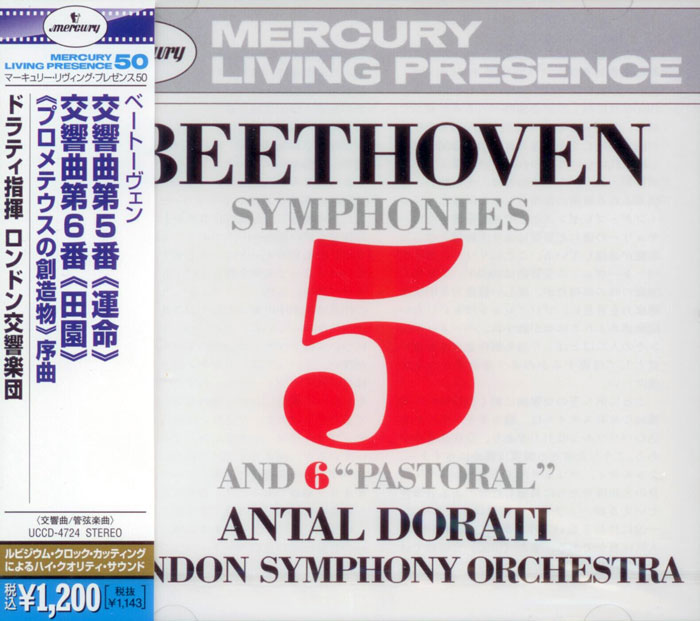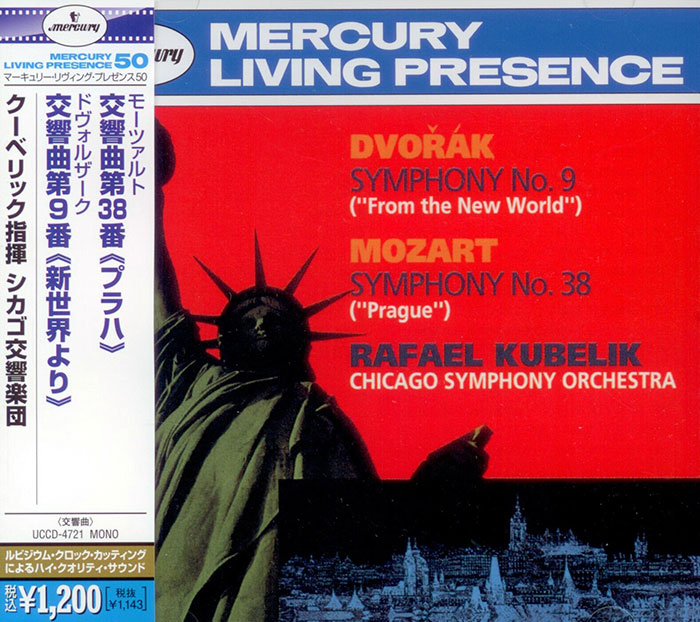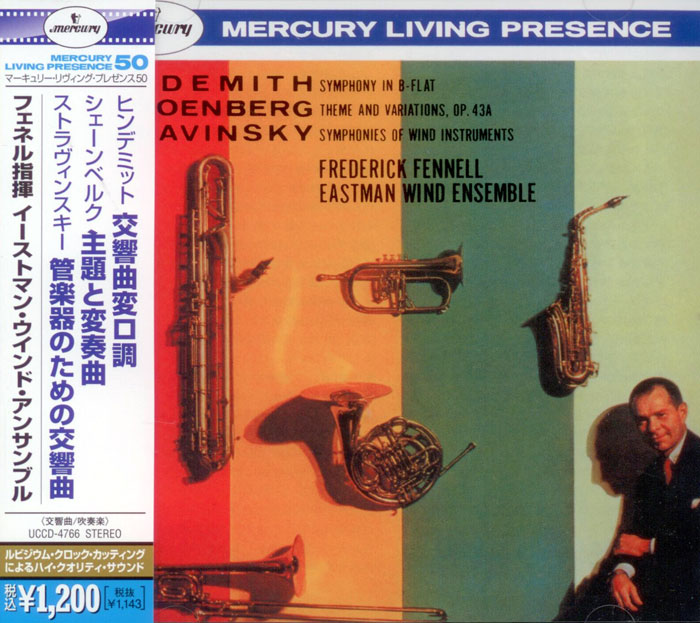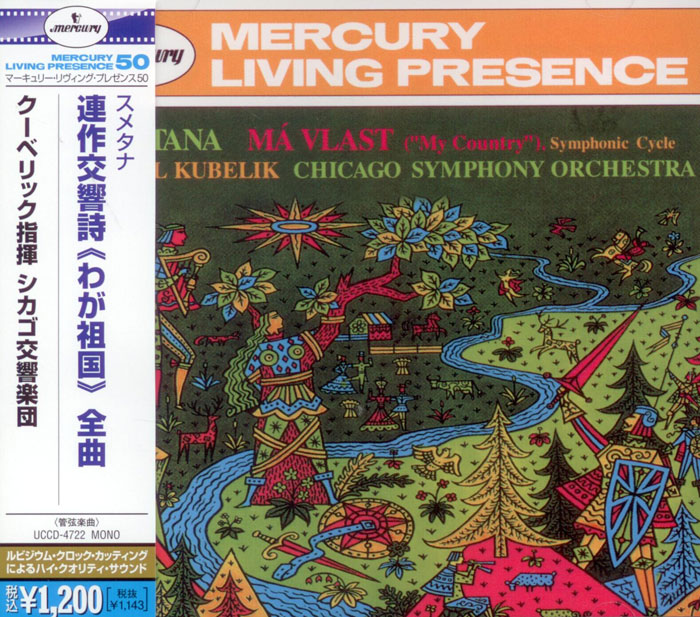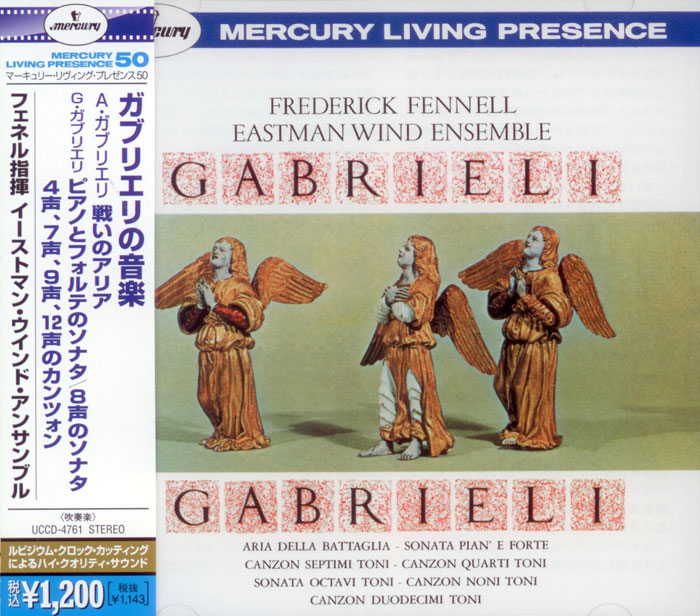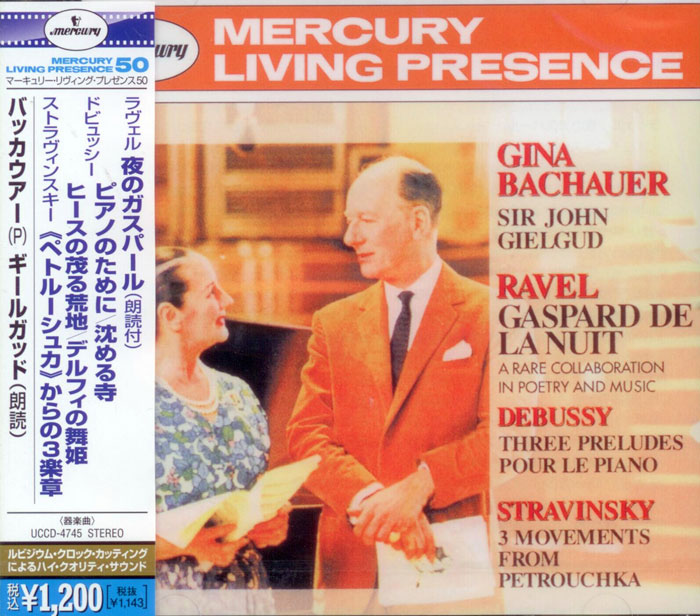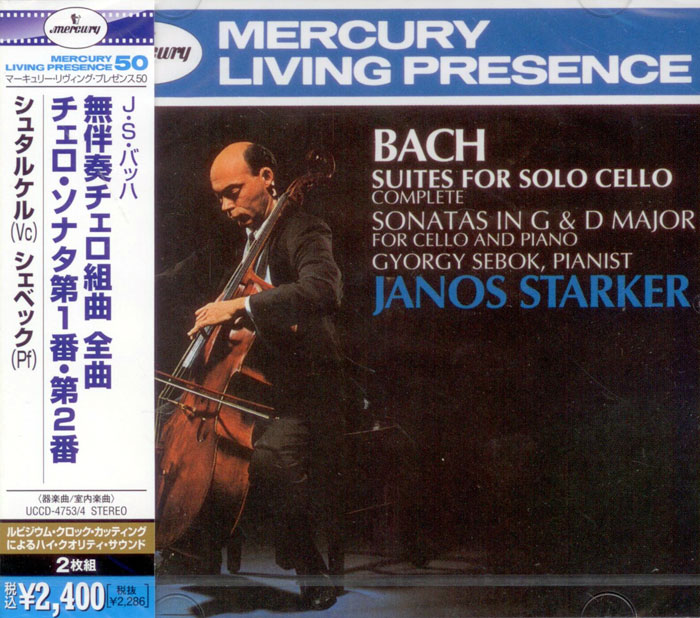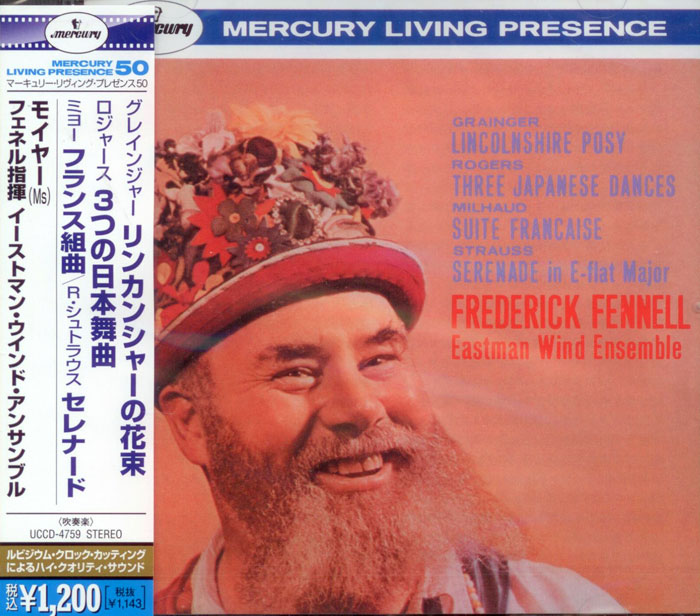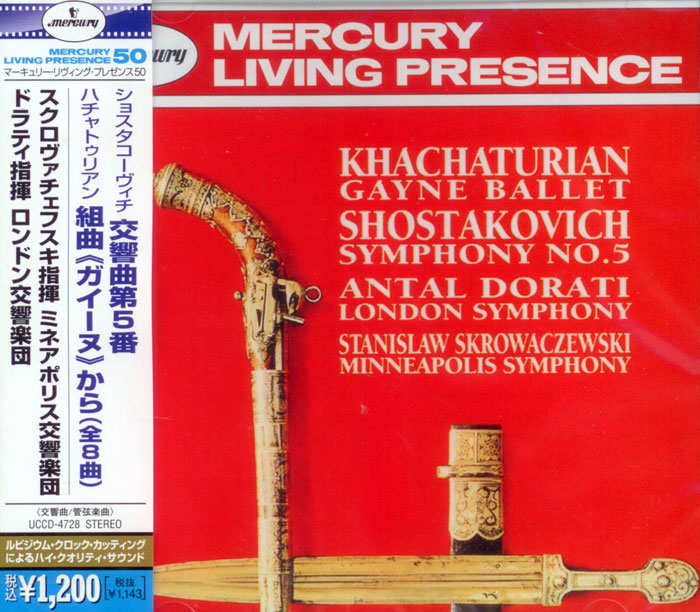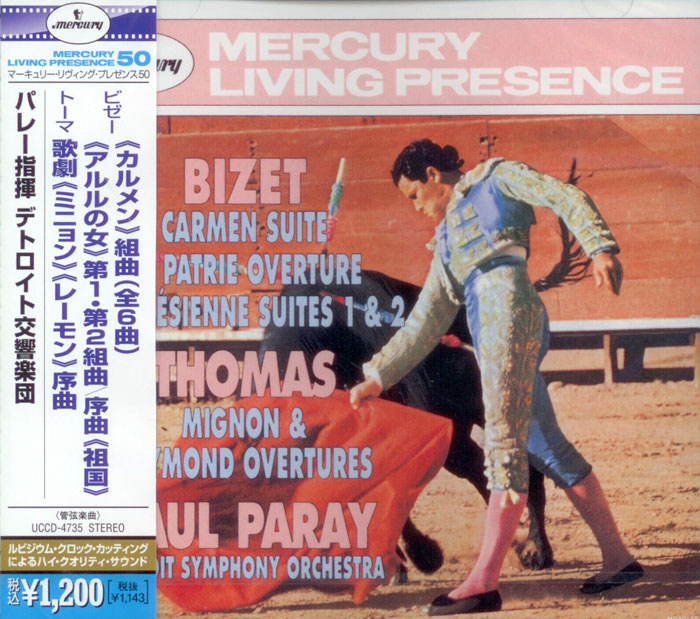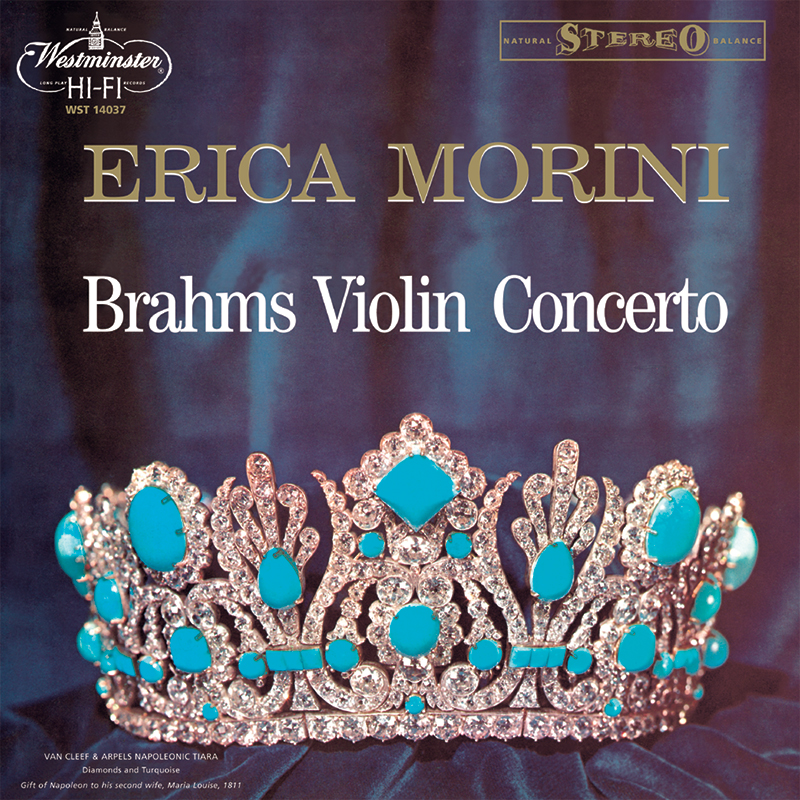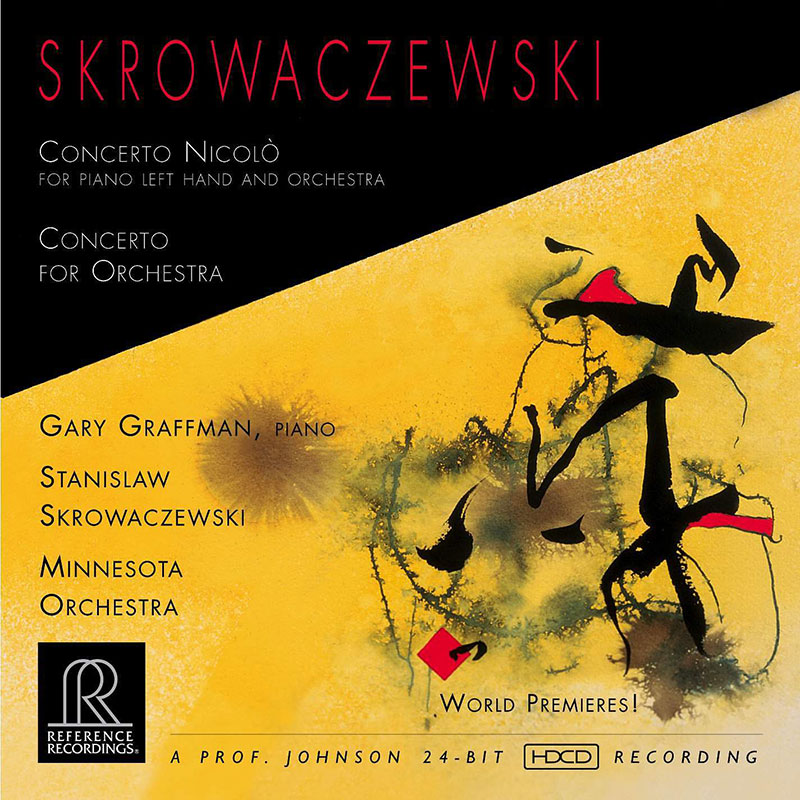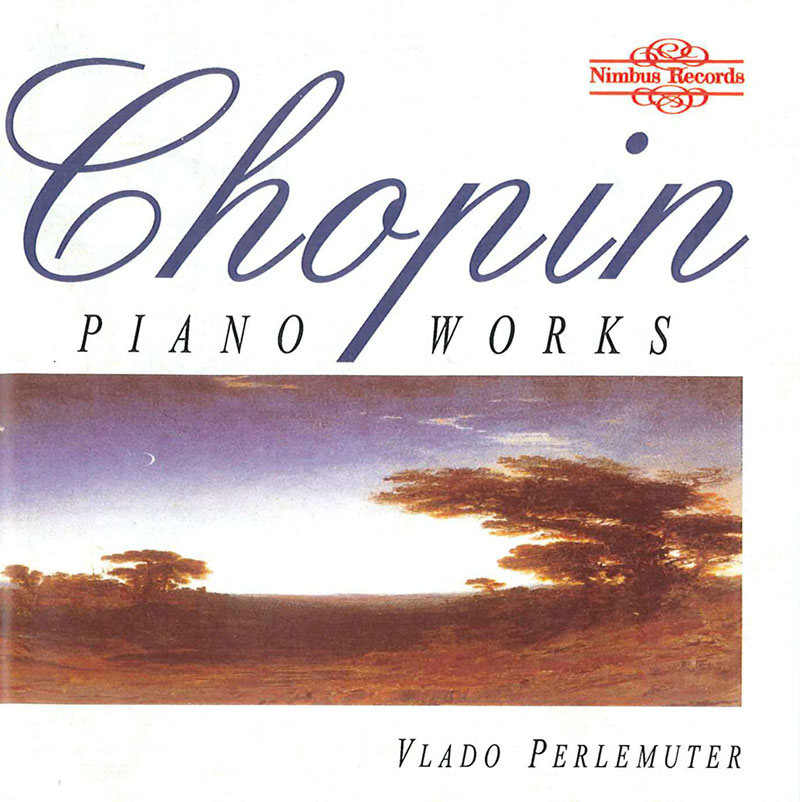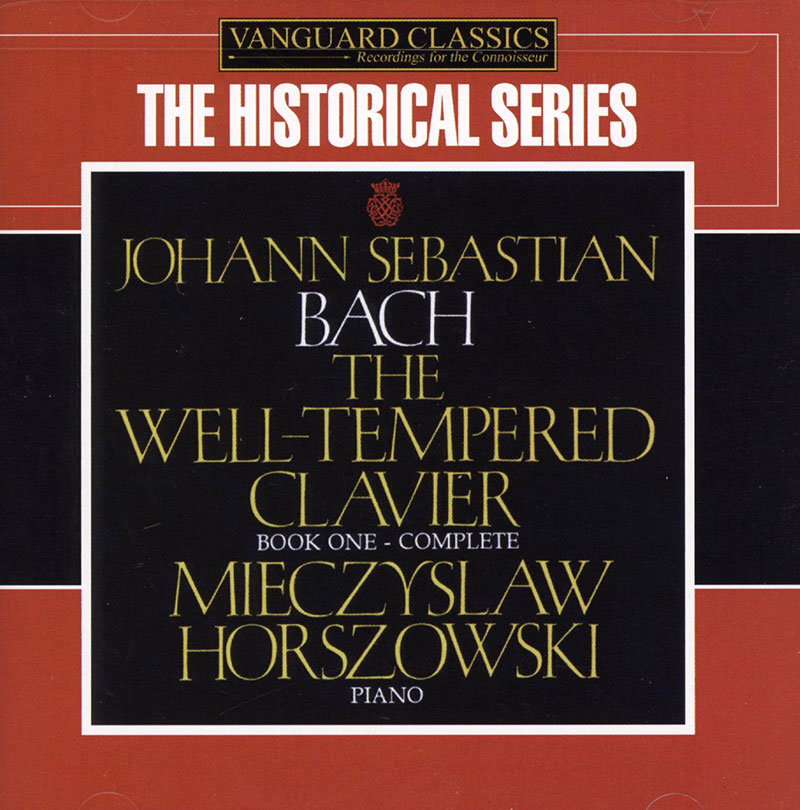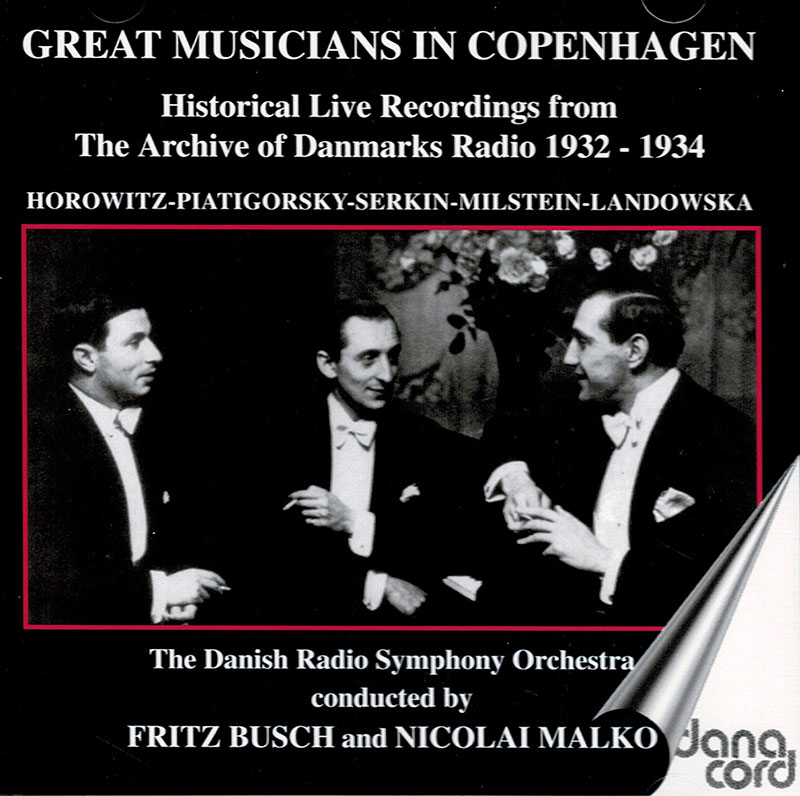Logowanie
Dlaczego wszystkjie inne nie brzmią tak jak te?
Chai Lang, Fan Tao, Broadcasting Chinese Orchestra
Illusive Butterfly
Butterly - motyl - to sekret i tajemnica muzyki chińskiej.
Brzmią jak sen na jawie
KHACHATURIAN, SHOSTAKOVICH, Antal Dorati, Stanislaw Skrowaczewski, The London Symphony Orchestra
Gayne / Symphony No. 5 in D minor, Op. 47
Stanisław Skrowaczewski,
Winylowy niezbędnik
ClearAudio
Cartridge Alignment Gauge - uniwersalny przyrząd do ustawiania geometrii wkładki i ramienia
Jedyny na rynku, tak wszechstronny i właściwy do każdego typu gramofonu!
ClearAudio
Harmo-nicer - nie tylko mata gramofonowa
Najlepsze rozwiązania leżą tuż obok
IDEALNA MATA ANTYPOŚLIZGOWA I ANTYWIBRACYJNA.
Osobowości
SKROWACZEWSKI, Stanislaw Skrowaczewski, Minnesota Orchestra
Concerto Nicolo for piano left hand and orchestra
WORLD PREMIERE!
BEETHOVEN, Agnes Giebel, Christa Ludwig, Walter Berry, Richard Lewis, Philharmonia Orchestra, Otto Klemperer
Symphony No. 9 in D minor, Op. 125 'Choral'

- 1. I Allegro Ma Non Troppo, Un Poco Maestoso
- 2. II Molto Vivace
- 3. III Adagio Molto E Cantabile - Andante Moderato - Adagio
- 4. IV Finale. Presto - Allegro
- Agnes Giebel - soprano
- Christa Ludwig - mezzosopran
- Walter Berry - bass
- Richard Lewis - tenor
- Philharmonia Orchestra - orchestra
- Otto Klemperer - conductor
- BEETHOVEN
Nawet teraz, 38 lat po śmierci Klemperera członkowie brytyjskich orkiestr grają według standardów ustanowionych przez tego genialnego dyrygenta. Człowiek, który na samym początku kariery zaimponował Gustavowi Mahlerowi wykonując jego scherzo z pamięci. Prowadził orkiestry w Los Angeles, Berlinie, Nowym Yorku, Philadelphii, Londynie. W 1937 pomagał w reorganizacji Pittsburgh Symphony Orchestra. Był związany również z operami w Hamburgu i Berlinie. W wielu miejscach występował gościnnie. Niezwykła osobowość, niezłomny charakter. Nawet, gdy cierpiał na powikłania związane z guzem mózgu nie unikał twórczej pracy. W 1951 roku wypadek na lotnisku w Montrealu zmusił go dyrygowania z krzesła. Żeby udowodnić swoje kompetencje wynajął własną orkiestrę, która zagrała wybrane przez niego utwory w Carnegie Hall. Próba była udana, ale Amerykanie nie dali się przekonać - Klemperer powrócił więc do Europy gdzie nadal koncertował - we Włoszech, Szwajcarii, oraz Niemczech. Postać niezwykle barwna, ciekawa, co objawia się w jego nagraniach. Warto prześledzić tę historię.
Bearing in mind that this is an uneven live performance, and that the mono recording is poorly balanced, this account of Beethoven's Symphony No. 9 may rank low on a list of recommendations. Yet this is an interesting document of one of the great Beethoven interpreters at the height of his relationship with his most responsive orchestra. Concluding their 1961 Beethoven series, Otto Klemperer and the Philharmonia Orchestra and Chorus gave the Ninth a faulty but stirring performance, which moves the emotions not through force but through simplicity and candor. Klemperer did not attempt to storm heaven here, but instead let the music breathe and flow, almost in a relaxed, Viennese manner. As a result, the first movement is not terrifying, but serious and thoughtfully argued. One may find the Scherzo the least enjoyable for its moderate tempo and lack of fire, but these deficiencies are forgotten when the sumptuous Adagio is heard, the best-sounding movement by far. The Finale gets off to a fitful start, and is marred by Walter Berry's inaccurate baritone solo. However, the movement gathers excitement and coheres quite well, largely through the valiant efforts of the brass. Despite the awkward ritardando at the coda, this Ode to Joy is convincingly Romantic with few traditionalist mannerisms. (Blair Sanderson, allmusic.com) Otto Klemperer's studio Beethoven Ninth is one of the finest recordings of the work, though this has not been an opinion unanimously shared. It suffers from none of his late tendency to slowness (at least in comparison with other, non-period instrument performances), and his unsentimental, direct view of the third movement is actually one of the swiftest around. This live recording was made just days after he wound up his studio efforts, and it makes for interesting comparison. Tempos in the outer movements are marginally more urgent, timpani are recorded with more impact, and the "live" recording balances are really very good; so good, in fact, that many listeners may prefer this to the studio job. Against these advantages, the singing is marginally less intense, and there are minor ensemble problems here and there as well as the usual audience noises. If you like Klemperer's Ninth, you may want to hear this, but it's very much of a piece with what we know, and proves the conductor's consistency more than anything else. Still, it's an excellent memento of a wonderful evening, and fans of the conductor won't hesitate. (David Hurwitz, ClassicsToday.com)






